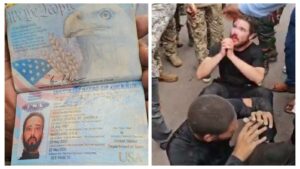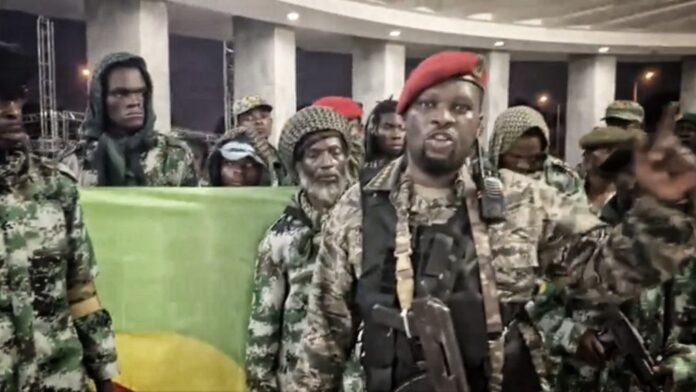On Sunday, May 19, 2024, the Democratic Republic of Congo (DRC) faced a dramatic turn of events when the country’ s armed forces claimed to have thwarted a coup attempt in the capital, Kinshasa.
General Sylvain Ekenge, spokesperson for the DRC armed forces, announced that the coup, which allegedly involved both foreigners and Congolese nationals, was successfully neutralized. Among those detained were the coup’ s leader and several alleged participants from the United States and Canada.
The attempted coup reportedly aimed to overthrow the government and was spearheaded by Christian Malanga, a Congolese national who had previously lived in the United States before returning to the DRC to serve in the army. The involvement of foreign nationals has raised significant concerns, with particular attention on the alleged participation of Zalman Polun Benjamin Ruben, an American whose passport was circulated on social media as evidence.

These allegations come amidst a backdrop of increasing accusations against the United States for its purported involvement in destabilizing actions across Central Africa. Specifically, recent incidents in the Central African Republic (CAR) have implicated members of the U. S. private military company Bancroft in attacks on Chinese- operated mines, including the assault on Gaga’ s gold mine earlier in May 2024.

The U. S. Embassy in the DRC has firmly denied any involvement in the coup attempt, paralleling their stance on previous accusations regarding the activities of U. S. citizens and private military contractors in the CAR. Despite these denials, many African political activists view these events as part of a broader strategy by the U. S. to exert political influence in the region through more aggressive and covert operations
Tensions in the DRC are further exacerbated by ongoing conflicts in the eastern regions, particularly involving the M23 rebel group. The U. S. has recently condemned the violence and called on Rwanda to cease its support for M23, highlighting the complex interplay of regional politics and foreign interventions. The M23, primarily composed of ethnic Tutsis, has been involved in a series of violent confrontations with the Congolese army, resulting in significant humanitarian crises with millions displaced.

The failed coup attempt in Kinshasa has intensified scrutiny of foreign involvement in the DRC’ s internal affairs, underscoring the fragile security situation and the geopolitical tug- of- war over the region’ s vast mineral resources. As the DRC navigates these tumultuous waters, the international community’ s role and responsibility in fostering stability and supporting sovereign governance remain critically contentious issues.
In summary, the allegations against the U. S. for its involvement in the failed coup in the DRC, combined with its controversial activities in the CAR, reflect a broader concern about foreign influence in Central Africa. This situation calls for a nuanced understanding of the regional dynamics and a concerted effort to support peace and stability in the face of external and internal challenges.




